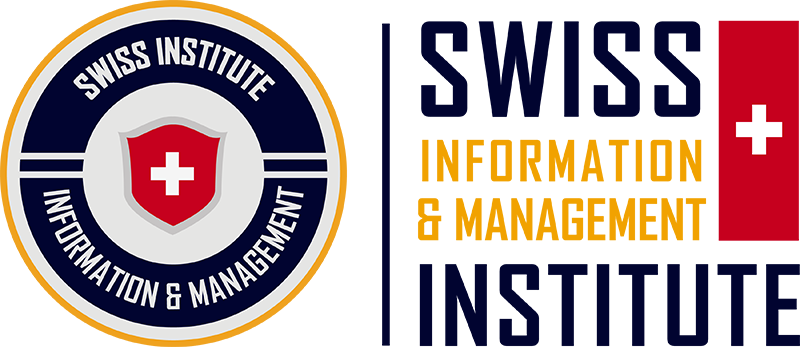Social customs of Switzerland When Studying Here
 Wherever you move, it will take time to get used to a different way of life and to make new friends. In Switzerland, when you become integrated into the local community, you will find that friendships are true and long-lasting. Often you hear of foreigners who, after being here for a few years, no longer want to leave. Check out some of Switzerland’s social customs that can help you blend in when studying abroad in Switzerland.
Wherever you move, it will take time to get used to a different way of life and to make new friends. In Switzerland, when you become integrated into the local community, you will find that friendships are true and long-lasting. Often you hear of foreigners who, after being here for a few years, no longer want to leave. Check out some of Switzerland’s social customs that can help you blend in when studying abroad in Switzerland.
Every country has its unique set of customs and traditions. Some rules of etiquette that apply to Switzerland may differ from those of your home country, so here we have tried to summarize some of the most important personal aspects of the Swiss way of life.
- When you meet someone, you should shake hands, instead of just saying «hello». If they are friends or relatives, you kiss them on the cheek – normally three times, on the right cheek, left and then right again! And when you leave, you shake hands or exchange kisses again!
- When you telephone someone, or answer the phone, you give your own name at the beginning of the conversation, rather than answer by saying «hello».
- You shouldn’t address a person using first names until you have known each other for a while and have become friends, unless this is how you were introduced. To use informal forms (e.g. the German «du») is not polite and can make the other person feel uncomfortable.
- When you move in, it is you who should take the first step and introduce yourself to the neighbors. If you don’t, they will feel that you do not want to meet them!
- The Swiss are very punctual – a minute over the appointed time is regarded as late!
- The Swiss are also strict when it comes to For example, in an apartment, it is bad manners to have a radio or TV on loud enough to disturb the neighbors after 10 pm. If you have a garden, you should not use a power mower or electric clippers on Sundays and holidays. As for the telephone, you should not call before 8 am or after 9 pm, except to family and close friends.
- Discipline is seen as very important – both self-discipline and the respect of others’ private If you rent an apartment, you will receive a list of regulations that explains your rights and duties. Sometimes, this is posted in the building’s entrance hall.
- If you own a dog, you must clean up after your pet in public areas such as in parks and on Plastic bags are available from green-colored containers.
- Dropping garbage is strictly forbidden – that explains Switzerland’s reputation for cleanliness.
- Inviting a friend by telephone to visit is of course normal, but for more formal occasions, invitations are often in written form, and are sent at least ten days in It is seen as impolite to drop in to a Swiss friend’s house or apartment without being invited. A thank-you note or phone call is customary after receiving gifts or invitations.
- Parties are normally finished at a reasonable If you expect a party to continue late, the neighbors should be warned in advance or invited.
- If you can’t keep an appointment, whether formal or informal, or if you will be particularly late, you should inform the host.
- The Swiss have a reputation for being friendly – but this may not include an invitation into their home! If you share a hobby with local residents – like a sport or music – you will find that barriers fall more quickly and you will be accepted more readily.
- Tipping in restaurants, taxis and hairdressers is not an obligation because service is included in the However, you might want to round up the amount due.
- If you have received special attention, it is appropriate to give a tip, perhaps 5 to 10% of the total bill.
- Smoking is forbidden in cinemas and theaters, doctors’ and dentists’ waiting rooms, areas of hospitals, all public buildings and on buses and trains, and restaurants.
- To calculate the time difference, note that Switzerland joins most of continental Europe on Central European On the last Sunday of March, Daylight Saving Time usually begins, and clocks are set forward one hour, until the last Sunday of October when they are set back again. (Remember: spring forward, fall back).
- Although it is not required by law to carry your passport or residence permit with you, it is advisable to carry some form of identification in case of an acident.
- If something you lost is returned to you, it is customary to reward the finder.
- A lost item may be turned in at the train or police station, and when you claim it there will be a finder’s fee of up to 10% of the value of the object.
- Christmas in Switzerland is definitely a family On Christmas Eve a tree is decorated with the whole family present, including children of every age. Gifts are exchanged and a traditional dinner is served.
- New Year’s Eve is a festive occasion mainly for the On New Year’s Day and for approximately the five following days, it is customary to wish everybody a Happy New Year with at least a warm handshake. It is customary to give a generous gratuity or a gift in an envelope to domestic helpers, the postman, and other service personnel.
- If you are in a social setting and alcoholic beverages are served, the entire party clinks glasses among each other and says «Cheers or Prosit» before taking the first sip of wine or beer.
- The key to smooth and successful integration is without a doubt learning the local language, even though many locals speak English and other foreign languages. Being able to make yourself understood in the local language will open many doors: be it with your neighbors, with local officials, in a sports club, while shopping or simply by being able to read the local press and inform yourself about local events.
Source: The Swiss Institute of Management and Innovation
